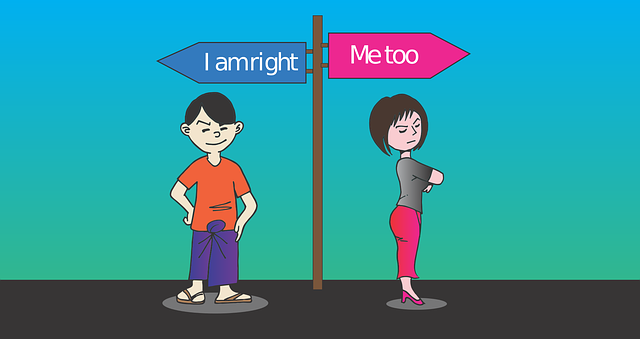TL;DR:
Wegovy and Ozempic, both semaglutide-based medications, differ significantly in their applications despite sharing an active ingredient. Wegovy is primarily indicated for weight management in adults with obesity or overweight by slowing gastric emptying to reduce appetite. In contrast, Ozempic targets type 2 diabetes patients by mimicking GLP-1 to enhance insulin secretion and glucagon suppression. Their distinct formulations, dosages, and indications make the choice crucial for healthcare providers and individuals seeking effective management of weight or diabetes. Key differences include dosage (Wegovy starts at 0.25 mg weekly, Ozempic at 0.5 mg), potential side effects (Wegovy may cause gastrointestinal discomfort, Ozempic carries hypoglycemia risk), and patient eligibility (Wegovy for obesity/overweight without type 2 diabetes, Ozempic for type 2 diabetes). Consulting healthcare professionals is essential to make an informed decision based on individual health needs.
“Exploring the nuances of Wegovy and Ozempic, two prominent weight management medications, is essential for healthcare professionals and individuals seeking effective treatments. This article delves into the distinct indications and patient eligibility criteria of Wegovy and Ozempic, providing a comprehensive comparison. Understanding their unique roles in addressing obesity-related health conditions is key to helping patients make informed choices between these ‘game changer’ therapies. By examining dosage, side effects, and treatment protocols, we aim to clarify the ‘what sets them apart?’ in the context of Wegovy versus Ozempic.”
Understanding Wegovy and Ozempic: An Overview of Each Drug

Wegovy and Ozempic are both prescription medications designed for weight management, but they have distinct differences in their indications and mechanisms of action. Wegovy (semaglutide) is a glucagon-like peptide-1 (GLP-1) receptor agonist that mimics the effects of a natural hormone produced by your body to regulate blood sugar levels. By imitating this hormone, Wegovy helps to reduce appetite, leading to decreased food intake and weight loss. It’s primarily indicated for adults with obesity or overweight with at least one weight-related condition, such as high blood pressure or type 2 diabetes.
Ozempic (semaglutide) is also a GLP-1 receptor agonist, but it has different dosing options and usage compared to Wegovy. Ozempic is typically used for adults with type 2 diabetes to improve glycemic control by enhancing insulin secretion and reducing glucagon release. While both drugs share the same active ingredient, their formulations and dosages differ, leading to varied effects on appetite suppression and blood sugar regulation. When considering Wegovy versus Ozempic, understanding these distinctions is crucial for healthcare professionals and patients aiming to manage weight or diabetes effectively.
Indications for Wegovy: When is it Prescribed?

Wegovy, a novel weight-management medication, stands out in comparison to its counterpart, Ozempic. Primarily, Wegovy is indicated for chronic weight management in adults with obesity or overweight, with or without comorbidities. It’s prescribed when lifestyle interventions like diet and exercise haven’t achieved meaningful weight loss. The drug works by slowing gastric emptying, leading to increased feelings of fullness and reduced appetite. This makes it a unique option within its class, positioning it as a potentially more effective solution for those seeking sustainable weight management.
In contrast, Ozempic, while also used for weight management, is primarily indicated for adults with type 2 diabetes. It aids in blood sugar control by mimicking the effects of the hormone GLP-1, which promotes insulin secretion and suppresses glucagon release. Unlike Wegovy, it’s not always the first choice for pure weight loss but rather a valuable addition to diabetes management regimens. This difference in primary indications highlights the varied foci of these medications within their shared class, reflecting the diverse needs of patients seeking treatment for obesity or diabetes.
Ozempic's Role: Targeting Specific Health Conditions

Ozempic plays a distinct role in weight management compared to its counterpart, Wegovy. This medication is primarily indicated for the treatment of type 2 diabetes, offering dual benefits by both lowering blood sugar levels and aiding in weight loss. Its ability to reduce appetite and increase feelings of fullness makes it an effective tool for managing not only diabetes but also obesity-related conditions.
Unlike Wegovy, which is a prescription-only medication for chronic weight management, Ozempic has been approved for use in conjunction with diet and exercise to improve glycemic control and promote sustainable weight loss in individuals with type 2 diabetes. This targeted approach positions Ozempic as a specialized solution, catering to the specific healthcare needs of diabetics while also contributing to overall metabolic health.
Comparing Treatment Protocols: Dosage and Administration

When comparing Wegovy and Ozempic, a key consideration revolves around their treatment protocols, specifically dosage and administration. Wegovy (semaglutide) is typically prescribed with a starting dose of 0.25 mg weekly, which is then increased to 1.5 mg or 2.4 mg weekly based on individual patient response. On the other hand, Ozempic (semaglutide) usually begins at 0.5 mg once weekly and can be adjusted up to 1.0 mg or 1.5 mg weekly. Both medications are administered through subcutaneous injection, usually in the abdomen or upper arm. The choice between the two often depends on patient preference, tolerance, and the healthcare provider’s assessment of which dose and administration schedule aligns best with the individual’s needs for weight management.
Side Effects and Considerations: What Differentiates Them?

When comparing Wegovy and Ozempic, understanding their side effects and considerations is crucial for making an informed decision between these weight management medications. Both drugs are designed to aid in weight loss, but they target different aspects of metabolism. Wegovy, a semaglutide injection, primarily acts on the gut to reduce food intake, while Ozempic, also a semaglutide medication, focuses on regulating blood sugar levels by mimicking a natural hormone.
A key differentiator lies in their side effects. Wegovy is known for causing gastrointestinal issues like nausea and vomiting, often more pronounced at the beginning of treatment. In contrast, Ozempic may lead to less gut-related symptoms but can result in hypoglycemia (low blood sugar) if not used as directed, particularly when combined with certain other medications or a strict low-carb diet. Additionally, both drugs require regular monitoring to ensure their effectiveness and safety.
Patient Eligibility: Who Can Benefit from Each Medication?

When comparing Wegovy and Ozempic, understanding patient eligibility is key. Each medication has distinct criteria for who might benefit most from its use. Wegovy (semaglutide) is typically prescribed for individuals with obesity or overweight, with or without comorbidities like type 2 diabetes. Its efficacy in weight management is often highlighted, making it a strong candidate for those seeking significant weight loss. On the other hand, Ozempic (semaglutide), also a form of semaglutide, targets patients with type 2 diabetes, helping to improve glycemic control. While both medications share similarities as injectables and belonging to the same class, their primary differences lie in their indicated uses, with Wegovy focusing on weight management and Ozempic centered around diabetes treatment.
Choosing the Right Weight Management Option

When considering weight management options, understanding the distinct indications for Wegovy and Ozempic is crucial. Both medications are approved for chronic weight management in individuals with obesity or overweight, but they target different aspects of weight control. Wegovy (semaglutide) primarily acts on the appetite-regulating hormones in the brain, leading to decreased hunger and increased feelings of fullness, which can help reduce calorie intake. On the other hand, Ozempic (semaglutide) mimics a natural hormone that influences both blood sugar levels and appetite, making it effective for type 2 diabetes management while also contributing to weight loss.
The choice between Wegovy and Ozempic depends on individual health profiles and specific needs. Patients with diabetes who require blood sugar control may find Ozempic more suitable due to its dual action. In contrast, those primarily focused on weight loss without a diabetes diagnosis might prefer Wegovy for its direct impact on hunger hormones. Consulting healthcare professionals is essential to determine the most appropriate medication based on personal health status and goals.
